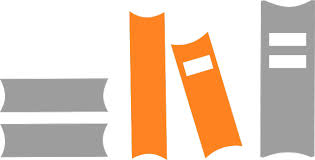Homonyms: Words We Often Misuse

Homonyms: Homophones and Homographs
Homonyms are both homophones and homographs.
Homophones: Are two or more words with the same pronunciation. However these words have different spellings and totally different meanings.
Homophone examples:
- There - their
- Sent - scent
- Aloud - allowed
Homographs: Are two or more words with the same spelling but not necessarily the same pronunciation and definitely not the same meaning or origin.
Homographs examples:
- Saw - (1) Past tense of see (2) a cutting tool
- Bass - (1) a deep voice (2) a type of fish
- Contract - (1) an agreement (2) to shorten or withdraw; opposite of expand
A note to writers and freelancers - including myself
I do it, you do it and so do many other writers. However, it's not okay. As writers the onus is on us to make sure were study our words. Look up the meanings if we are unsure and use the correct words when needed.
Misused words can cause many freelance contractors to;
- lose out on repeat jobs
- gain negative feedback
- build bad reputations.
When we write independently and publish our work on sites such as Hubpages, or publish our own blogs or websites, we don't have the privilege of a client asking us to redo or edit. What we publish is what our audiences will read. It is left to us to make sure that we send the right message to our readers that we have a good command of the English language and that we know what we are talking about.
Bad language or incorrect word usage can cause confusion in the mind of the reader. In some cases the phrase, sentence or passage will take on a totally new meaning if interpreted a certain way.
Writers and freelance workers, please let us pay attention to our word usage and help each other out when possible. Don't be afraid to let someone know they have misused a word. Please let me know whenever I mess up!
Use a dictionary and check your spelling and word meaning when you are unsure. Even if you are sure, it cannot hurt to double check.
I must clarify this article was written to myself as well. If I write an article such as this I draw attention to my own writing; and then so, I must pay extra attention to my own work. I am no genius with the English language and I too struggle with words and meanings.
What I do when writing online is bring up an extra tab with Websters or Oxford's online dictionary to double check words I am not sure about; whether it be the meaning or spelling.

Popularly misused homophones
We see these words used many times and we may bypass them as just simple mistakes on the writer's part. But should we follow these writers we may find them commonplace. I believe many of us honestly do not know the difference in meaning and so we innocently use them incorrectly.
- Your and you're. I have seen your used in place of you're (you are) so many times that I just know these writers have no clue.
An incorrect example sentence would be: "when you're done making the calls, come see me." The correct sentence should read: "when you're (you are) done making the calls, come see me."
Your implies ownership in the second person and should be used when referring to a subject and an object. Example: "Your mother called and left a message." Your mother is the subject and the message is the object. The sentence also includes the subject performing an action.
You're is the contraction for you are and should only be used in such cases. Example: "You're beautiful and charming." If after writing the sentence it cannot be read with the original two words, then the word is used incorrectly.
- There, their and they're. I have come to realize that many people will use their instead of they're. Maybe they don't know that the contraction they're exists as it is rarely used nowadays.
Their implies ownership in the third person and should be used when talking about a subject and an object such as: "Their parents were late picking them up."
They're is the contraction for "they are" and should be used accordingly, example: "They're playing in the back yard now." The only way you could used their in that sentence is to imply that the action of them playing has caused a reaction of some sort, example "Their playing in the back yard has caused the neighbors to complain, so we called them in."
There is an adverb that denotes a place, region, area. It is also used in exclamation. Example sentence for a place: "There used to be a hole right here." (The place is actually here but the use of "there" is in the past whereas "here" is in the present. The two words are opposite and used in the same sentence which implies a comparison). Example exclamatory sentence: "There, you see what's you've done!" The sentence does not call for an answer so an exclamation sign is used instead of a question mark.
Popular Homophones To Look Out For
Here - An adverb denoting a place. Used also to get someone's attention.
| Hear - a perception of sound that resonates in the ear. Verb - to hear
| Hair - a threadlike outgrowth from the skin of mammals
| Hare - an animal related to the rabbit
| Heir - a predecessor or person acquiring an inheritance
|
There - an Adverb denoting a place: opposite of here
| Their - possessive pronoun third person
| They're - contraction of two words "they are"
| ||
Your - possessive pronoun in the second person
| You're - a contraction of two words "you are"
| |||
Beer - an ale
| Bear - (1) a animal (2) to carry
| Bare - to be naked
| ||
Deer - an animal
| Dare - to challenge. Eg. "I dare you".
| Dear - (1) a form of address (2) and endearment (3) to cherish (4) can be used as a form of exclamation: "Oh dear me!"
| ||
Scene - a place or location
| Seen - past participle of see
| |||
Site - a location
| Sight - the ability to see
| |||
Meet - to come together
| Meat - animal carcass
| Mete - to share or alot
| ||
Fear - to be afraid
| Fair - to be just
| Fare - (1) the fee charged for transit (2) the outcome of a situation "ball fared well given the economic conditions"
| ||
Some - a portion of an amount
| Sum - the total of things added together
|
There are so many more words....
I knew there were lots more words out there so have decided to keep adding as I remember or come across them. So here is another list. Thanks for the reminder Will.
- It's - contraction for "it is"; its - possessive pronoun usually used for animal, place or thing
- Aloud - not silent; allowed - past tense of allow (to let or give permission)
- Break - to come apart; brake - to stop short as in the brake in a car
- Weak - to lack strength; week - a seven day period
- Shore - the edge of the sea, usually the sandy area near the beach; sure - to be certain
- Plain - (1) void of beauty, ordinary, (2) a flat area of land usually void of trees; plane - an aircraft, the short for aeroplane.
- Feat - an achievement of great skill and strength; feet - that area below the ankle where we use to walk or stand on.
- Sore - tender, achy; soar - to ascend
- Boar - male pig, usually a wild one; bore - (1) to make a hole in something (2) to make someone feel dull and disinterested. Also used as a noun for (1) the hollow part o the gun barrel (2) A very strong high wave cause by the meeting of two tides (3) a dull person
Will keep adding to this list.







